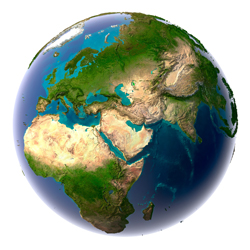Establishing a base for ethnographic research
The 'Centre for global and regional ethnographies at Aarhus University' (GLOREA) project aimed at establishing the centre as a core component of an initial five-year research professorship. Pegged for enabling research into the ethnography of global and regional migration and mobility, the professorship covers two broad areas. The first concerns new forms of migration and mobility in Europe, European borders and the management of migration through a comparative regional perspective. The second focuses on transnational mobility and entrepreneurship in creative industries and creative cities, again in comparative regional contexts, albeit with a focus on east Asia. PhD and postdoctoral research students, recruited internationally, receive support and training in quantitative and qualitative methods, as well as specialist training as ethnographers. An additional aim is to create the conditions for bringing back an established European researcher from the United States. Integration in Europe has been achieved with a high degree of success by securing a position as full professor at a prestigious social sciences institution in France. The Marie Curie International Reintegration Grant (IRG) has clearly contributed to being able to retain a high profile researcher in Europe and support the integration phase for the two different hosts. A wide range of international research, dissemination activities, and funding as well as recruitment drives built up GLOREA as a small but dynamic research centre. Since the project commenced, the centre has secured funding through the EU's Seventh Framework Programme (FP7) 'The Europeanisation of Everyday Life: Cross-Border Practices and Transnational Identities among EU and Third-Country Citizens'(EUCROSS) initiative. The centre also successfully supported a bid for two years of postdoctoral funding from the Danish humanities board (FKK). Work in the centre's two areas of focus forms a fundamental base for exploring the human dimensions of globalisation and regionalisation. Ongoing achievements inspired by the establishment of GLOREA thus stand to contribute significantly to ethnographic research. Knowledge transfer to both host organisations, Aarhus University in Denmark and Sciences Po in France, has been very successful. It continues in both organisations beyond the IRG funding period through networks and staffing arrangements including a collaborations and PhD supervision established by the GLOREA consortium.



